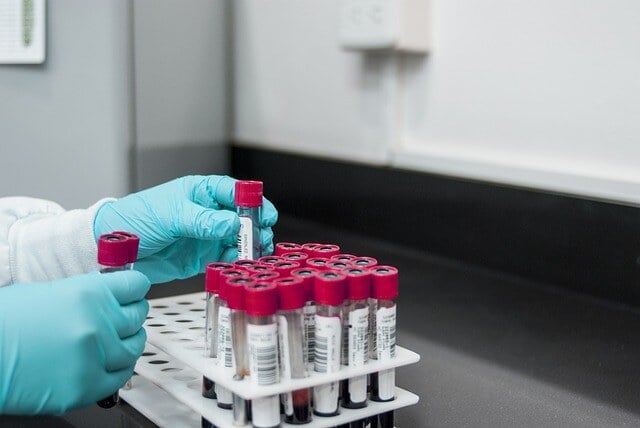There is a reason why chemistry sets have continued to be extremely popular as presents since their first release in the 1800's.
You see by nature kids are inherently curious about the composition, structure, properties, and behavior of matter and are fascinated by understanding the world at the molecular and atomic levels, which fuels their interest in studying chemistry and making a career out of it.
Chemistry offers a wide array of career paths in various industries such as pharmaceuticals, healthcare, environmental science, materials science, forensics, and more, and a degree in chemistry can open doors to jobs in research (as a research chemist), development, manufacturing, quality control, and academia.
Another upside is that a chemistry education, including a chemistry degree, emphasizes critical thinking, problem-solving, analytical skills, and laboratory techniques, which are transferable to various professions and everyday life. So you don't have to be stuck in the industry for the rest of your life.
Ultimately, people study chemistry at the university level for a mix of personal interest, career prospects, a desire to contribute to scientific advancements, and the pursuit of knowledge in a field that has a profound impact on various aspects of life.
Plus, a knowledge of chemistry can aid in your job search if you are looking for a high paying career in areas such as chemistry or chemical engineering.
Top 10 Best Paying Chemistry Jobs & Careers 2026 (Inc Salaries)
1. Chemical Technician
A Chemical Technician is a skilled professional who works in various industries or laboratory settings, assisting chemists and chemical engineers in conducting experiments, analyzing chemical substances and various materials, and performing technical tasks related to chemical processing, research, or manufacturing to develop new products.
They assist in setting up and conducting experiments, following established procedures and safety protocols that may involve measuring substances, mixing chemicals, and operating laboratory equipment.
To become a Chemical Technician, you'll need a combination of education, practical skills, critical thinking skills, and sometimes certifications, but generally you will require:
Taking science courses, particularly chemistry, biology, physics, and mathematics at high school. Pursuing an associate degree or certificate program in chemistry, chemical technology, or a related field.
Gaining hands-on laboratory experience through internships, co-op programs, or entry-level positions in research laboratories or industrial settings.
Acquiring proficiency in using laboratory equipment, conducting experiments, analyzing data, and following safety procedures, or, obtaining certifications as offered by the National Registry of Certified Chemists (NRCC). This certification demonstrates expertise in chemical technology and may improve job opportunities.
The average annual salary for a Chemical Technician in the US is $56,594.
2. Chemistry Teacher
A Chemistry Teacher is an educator who specializes in teaching chemistry, the branch of science that focuses on the composition, properties, reactions, and behavior of matter.
They work in various educational settings, including middle schools, high schools, and sometimes colleges or universities, and their primary role is to teach students about the fundamental principles and concepts of chemistry.
Becoming a Chemistry Teacher involves a combination of education, practical experience, and obtaining teaching credentials, but generally you will require:
Obtaining a bachelor's degree in chemistry or a related field (such as biochemistry, chemical engineering, or education with a chemistry focus).
Pursuing a teacher preparation program or a bachelor's degree in education that includes coursework in teaching methods, educational psychology, classroom management, and student assessment. Some programs offer specialized tracks for aspiring science teachers, focusing on teaching science subjects like chemistry.
Obtaining teaching certifications which may involve passing exams such as the Praxis series in the United States or other regional teaching certification exams, or, considering pursuing a master's degree or higher in education or a specialized field of chemistry to enhance your qualifications and potentially open up more opportunities for advancement.
The average annual salary for a Chemistry Teacher in the US is $54,901.
3. Forensic Scientist
A Forensic Scientist is a highly trained professional working in a crime lab who applies scientific principles using techniques to analyze evidence from crime scenes and aid in solving criminal cases.
They play a critical role in the criminal justice system by collecting, examining, and interpreting physical evidence to help solve crimes and provide impartial scientific analysis for investigations.
The vocation offers career opportunities in various settings, including crime laboratories, medical examiner offices, law enforcement agencies, government agencies, private forensic firms, and research institutions.
Becoming a Forensic Scientist involves obtaining specialized education, relevant skills, and practical experience, but generally you will require:
Obtaining a bachelor's degree in forensic science, chemistry, biology, biochemistry, or a related field. If you go this route, ensure that the coursework includes subjects such as biology, chemistry, forensic techniques, genetics, and criminalistics.
Obtaining a specialization in areas such as DNA analysis, toxicology, ballistics, digital forensics, or crime scene investigation. Considering pursuing a master's degree or Ph.D. in forensic science or a specialized field within the discipline for advanced positions or research opportunities.
Advanced degrees may enhance job prospects and provide deeper knowledge in specific areas. Acquiring proficiency in using specialized forensic equipment, laboratory techniques, and scientific methods for evidence analysis, or, pursuing certifications that demonstrate expertise and competence in specific areas.
Certifications like the American Board of Criminalistics (ABC) certification or other relevant certifications may be beneficial for career advancement.
The average annual salary for a Forensic Scientist in the US is $72,244.
4. Quality Control Chemist
A Quality Control Chemist is a professional responsible for ensuring the quality of a product, and as such that products, materials, or processes meet specific quality standards and comply with regulatory and health and safety requirements within industries such as pharmaceuticals, manufacturing, food and beverages, cosmetics, and more.
They work alone or work as part of a team and play a vital role in ensuring that products meet quality specifications, comply with regulations, and maintain high standards of safety and efficacy in various industries, contributing to consumer safety and satisfaction.
Becoming a Quality Control Chemist typically involves a combination of education, practical experience, and specific skills, but generally you will require:
Obtaining a bachelor's degree in chemistry, biochemistry, pharmaceutical sciences, or a related field. If you do go this route, ensure that coursework includes topics in analytical chemistry, instrumental analysis, quality control principles, and laboratory techniques.
Taking classes that focus on quality control methods, instrumentation, statistical analysis, and regulatory compliance to gain knowledge applicable to quality control practices.
Acquiring proficiency in using laboratory equipment and techniques commonly used in quality control testing, such as chromatography, spectroscopy, titration, and other analytical methods. Developing strong analytical skills to accurately analyze data, interpret test results, and troubleshoot any issues related to quality control tests.
Gaining familiarity with industry-specific regulations and quality standards relevant to the field in which you wish to work (e.g., pharmaceuticals, manufacturing, food and beverages), or, obtaining certifications relevant to quality control, such as Certified Quality Technician (CQT) or Certified Pharmaceutical GMP Professional (CPGP), which can enhance your credentials.
The average annual salary for a Quality Control Chemist in the US is $63,828.
5. Hazardous Material Management Chemist
A Hazardous Material Management Chemist is a specialized professional responsible for the safe handling, storage, transportation, disposal, and management of hazardous materials (HAZMAT) in compliance with environmental regulations and safety standards.
They work in various industries, including manufacturing, environmental management, research facilities, and government agencies, ensuring the proper management of hazardous substances to protect human health and the environment.
Becoming a Hazardous Material Management Chemist typically involves a combination of education, practical experience, and specialized skills, but generally you will require:
Obtaining a bachelor's degree in chemistry, environmental science, chemical engineering, or a related field. If you do go this route, ensure that coursework includes topics in hazardous waste management, environmental regulations, chemistry, and safety protocols.
Taking classes that focus on hazardous material management, environmental regulations (such as RCRA, OSHA), risk assessment, waste management, and environmental impact assessment.
Gaining a comprehensive understanding of federal, state, and local regulations governing hazardous material management, including protocols for handling, storage, transportation, and disposal.
Seeking internships, co-op programs, or entry-level positions in industries dealing with hazardous materials, environmental management firms, waste treatment facilities, or government agencies involved in environmental regulation and compliance, or, obtaining certifications relevant to hazardous material management, such as Certified Hazardous Materials Manager (CHMM) or Occupational Safety and Health Administration (OSHA) certifications, to enhance your credentials.
The average annual salary for a Hazardous Material Management Chemist in the US is $68,334.

6. Chemistry Engineer
A Chemistry Engineer, often referred to as a Chemical Engineer, is a professional who applies principles of chemistry, physics, biology, mathematics, and engineering to design, develop, and optimize processes and products involving chemical transformations or interactions.
They play a crucial role in developing and improving processes for various industries, ensuring the safe and efficient production of chemicals, materials, and products while considering environmental sustainability and safety standards, and work across various industries, including manufacturing, pharmaceuticals, energy, environmental protection, and more, to develop efficient processes, improve products, and solve chemical-related challenges.
Becoming a Chemical Engineer typically involves a combination of education, practical experience, and specific skills, but generally you will require:
Obtaining a bachelor's degree in chemical engineering from an accredited institution. If you do go this route, ensure that coursework includes chemistry, mathematics, physics, thermodynamics, fluid mechanics, process control, and engineering principles.
Taking classes that focus on chemical processes, material and energy balances, reaction engineering, transport phenomena, and unit operations.
Developing a strong foundation in engineering principles, problem-solving, and process design techniques applicable to chemical processes and systems, and strong analytical skills to evaluate and optimize chemical processes, troubleshoot issues, and propose effective solutions. Obtaining professional certifications relevant to chemical engineering, though it's not always required.
Organizations like the American Institute of Chemical Engineers (AIChE) offer certifications that may enhance your credentials, or, pursuing a master's or Ph.D. in chemical engineering for specialized roles, research positions, or career advancement opportunities in academia or specific industries.
The average annual salary for a Chemistry Engineer in the US is $95, 756 and as such it is one of the highest paying jobs for chemistry.
7. Analytical Chemist
An Analytical Chemist is a specialized scientist who focuses on analyzing and determining the composition, structure, and properties of substances through various chemical and instrumental techniques.
These professionals conduct research working in laboratories across diverse industries, including pharmaceuticals, environmental science, food and beverages, forensics, materials science, and research institutions.
Becoming an Analytical Chemist involves a combination of education, practical laboratory experience, and developing specific skills, but generally you will require:
Obtaining a bachelor's degree in chemistry, analytical chemistry, or a related field from an accredited institution. If you do go this route, ensure that coursework includes analytical chemistry, instrumental analysis, spectroscopy, chromatography, and laboratory techniques.
Taking classes that focus on analytical methods, instrumental analysis, data analysis, and laboratory skills required for chemical analysis.
Gaining hands-on experience using a variety of analytical instruments and techniques, such as chromatography (HPLC, GC), spectroscopy (MS, IR, NMR), titration, and wet chemistry methods. Developing strong analytical and problem-solving skills to interpret complex data and troubleshoot issues related to chemical analyses.
Seeking internships, research opportunities, or laboratory positions in academic or industry settings to gain practical experience in chemical analysis and instrumentation.
Considering obtaining certifications relevant to analytical chemistry, such as certifications offered by professional organizations or training programs focused on specific analytical techniques, or, pursuing a master's or Ph.D. in analytical chemistry or a related field for specialized roles, research positions, or career advancement in academia or specific industries.
The average annual salary for an Analytical Chemist in the US is $79,186 and as such it is one of the highest paying jobs related to chemistry.
8. Organic Chemist
An Organic Chemist is a scientist who specializes in the study of organic chemistry, a branch of chemistry that focuses on the structure, properties, composition, reactions, and synthesis of organic compounds.
They play a significant role in various industries, including pharmaceuticals, materials science, biotechnology, and more, contributing to the development of new compounds, materials, and technologies essential for diverse applications in our daily lives.
Becoming an Organic Chemist involves a combination of education, laboratory experience, and specialized skills., but generally you will require:
Obtaining a bachelor's degree in chemistry with a focus on organic chemistry from an accredited institution. If you do go this route, ensure that coursework includes organic chemistry, organic synthesis, spectroscopy, and laboratory techniques.
Taking classes that emphasize organic chemistry principles, reaction mechanisms, and analytical methods used in the characterization of organic compounds.
Gaining hands-on experience in organic synthesis techniques, purification methods, and analytical techniques such as spectroscopy (NMR, IR, MS), chromatography, and other characterization methods.
Developing strong analytical and problem-solving skills to understand complex reaction mechanisms and devise strategies for organic synthesis. Seeking research opportunities, internships, or laboratory positions in academic or industry settings focused on organic chemistry.
Engage in research projects to gain practical experience. Participating in laboratory work related to organic synthesis and characterization to gain exposure to real-world applications and instrumentation, or, considering pursuing a master's or Ph.D. in organic chemistry or a related field for specialized roles, research positions, or academic careers.
The average annual salary for an Organic Chemist in the US is $67,672.
9. Materials Scientist
A Materials Scientist is a specialized professional who studies and manipulates the properties of materials to create new products or improve existing ones.
They investigate the structure, properties, composition, and behavior of materials to understand how they function and to develop materials with specific characteristics for various applications.
Becoming a Materials Scientist typically involves a combination of education, laboratory experience, and specialized skills, but generally you will require:
Obtaining a bachelor's degree in materials science, metallurgy, chemistry, physics, or a related field from an accredited institution. If you do go this route, ensure that coursework includes materials science principles, chemistry, physics, and laboratory techniques.
Taking classes focusing on material synthesis, characterization, properties of materials, and analytical techniques used in materials science.
Gaining hands-on experience using laboratory equipment and techniques for material synthesis, characterization, and testing. If you do this, familiarize yourself with instruments used for microscopy, spectroscopy, mechanical testing, etc.
Developing strong analytical and problem-solving skills to understand material behavior and devise strategies for material development and improvement. Seeking internships, research assistant positions, or laboratory roles in academic or industry settings related to materials science.
Engage in research projects to gain practical experience. Participating in collaborative projects, academic research, or extracurricular activities focusing on materials science to expand your knowledge and expertise, or, pursuing a master's or Ph.D. in materials science or a specialized area within the field for research-oriented roles or advancement in the industry.
The average annual salary for a Materials Scientist in the US is $97,419 and as such it can lead to a highly successful career in the chemistry profession.
10. Research Scientist
A Research Scientist is a professional who conducts scientific research and experiments to advance knowledge in a specific field or discipline.
They play a pivotal role in advancing scientific knowledge, developing new technologies, solving complex problems, and contributing to innovations in various scientific fields, ultimately impacting society, technology, and industry advancements, and work in various sectors, including academia, government research institutions, private industries, and non-profit organizations, focusing on exploring, discovering, and applying new scientific principles, technologies, or methodologies.
Becoming a Research Scientist typically involves a combination of education, research experience, specialized skills, and a passion for scientific inquiry, but generally you will require:
Obtaining a bachelor's degree in a scientific field relevant to your area of interest (e.g., biology, chemistry, physics, engineering) from an accredited institution. If you do go this route, focus on coursework that emphasizes research methods, laboratory techniques, and foundational knowledge in your field.
Taking classes that build a strong foundation in your chosen field of study and focus on developing critical thinking, problem-solving, and analytical skills. Seeking research opportunities as an undergraduate student through internships, research assistantships, or participation in research projects under faculty supervision.
Gaining hands-on experience in laboratory techniques, experimental design, data analysis, and scientific instrumentation relevant to your field of interest.
Considering pursuing a master's degree in your field to gain deeper knowledge and research experience, though it may not be necessary for all research positions, or, pursuing a Ph.D. involves conducting original research, writing a dissertation, and making a significant contribution to your field.
The average annual salary for a Research Scientist in the US is $99,285 and as such it can lead to a highly successful career in chemistry.
Conclusion
The chemistry industry has been going for decades upon decades and can offer numerous benefits and opportunities due to its diverse applications, continuous innovation, and contribution to various fields.
Not only can it be financially rewarding, provided you have the right skills and qualifications, but entering the chemistry industry provides a platform to contribute to scientific progress, make a difference in the world, and pursue a fulfilling career in an intellectually stimulating and impactful field.
If you are looking to get into the chemistry industry with a top annual wage, there are many ways to get there.
To land one of the varied high paying jobs, it would be best to consider taking science courses, particularly chemistry, biology, physics, and mathematics at high school, seeking on the job training, gaining certificates, or obtaining either a BBA or an MBA degree from an internationally-recognized university such as Nexford.
FAQs
What are the highest paying chemistry jobs in demand for the future?
Several chemistry-related fields offer high-paying jobs with potential demand for the future due to advancements in technology, healthcare, sustainability, and industry needs, but some of the highest-paying chemistry-related jobs that are likely to remain in demand in the future include:
Chemical Technician, Chemistry Teacher, Forensic Scientist, Quality Control Chemist, Hazardous Material Management Chemist, Chemistry Engineer, Analytical Chemist, Organic Chemist, Materials Scientist, and Research Scientist.
What are the most in-demand skills needed to get into a high paying chemistry career?
To pursue a high-paying career in chemistry, it's crucial to acquire a combination of technical expertise, practical skills, and specialized knowledge. Here are some of the most in-demand skills that can help you excel in a high-paying chemistry career:
Proficiency in various laboratory techniques such as chromatography, spectroscopy (NMR, IR, MS), titration, and other analytical methods commonly used in chemical analysis. Experience and familiarity with sophisticated laboratory instruments and equipment used in chemical research and analysis.
Knowledge and expertise in organic and inorganic synthesis techniques, understanding of reaction mechanisms, and ability to design and execute chemical reactions. Strong data analysis skills to interpret experimental results, perform statistical analysis, and draw meaningful conclusions.
Advanced degrees (master's or Ph.D.) in chemistry or a specialized area within the field. Doing a specialization in a specific subfield of chemistry such as organic chemistry, materials science, environmental chemistry, or biochemistry can enhance career prospects.
And, understanding industry regulations, safety standards, and compliance requirements relevant to specific sectors like pharmaceuticals, environmental science, or manufacturing.
What are some high-paying chemistry jobs you can get without a degree?
While a degree is typically required for most high-paying chemistry jobs due to the technical nature and specialized knowledge needed in the field, there are some chemistry-related roles or technician positions that may not require a traditional four-year degree but might necessitate specialized training, certifications, or an associate degree from a community college or technical school.
They include: A Chemical Technician, Laboratory Assistant, Quality Control Inspector, and, Manufacturing Operator.
It's important to note that while these roles may offer opportunities to work in the chemistry field without a traditional bachelor's degree, they might have limitations in terms of career advancement, earning potential, and scope of responsibilities compared to roles requiring higher education, as employers prefer applicants with a university degree.
So, gaining relevant experience through internships, apprenticeships, on-the-job training, and acquiring certifications or specialized skills in areas such as laboratory techniques or safety protocols can enhance prospects for entry-level positions in the chemistry field.
How can I improve my chances of getting a high-paying job in chemistry?
Improving your chances of securing a high-paying job in chemistry involves a combination of gaining relevant education, acquiring specialized skills, gaining practical experience, networking, and continuous learning, but there are some strategies to enhance your prospects that include:
Pursuing a bachelor's degree or higher in chemistry, chemical engineering, materials science, or a related field from a reputable institution. Gaining an advanced degree (master's or Ph.D.), which can provide deeper knowledge and research experience.
Focusing on a specialized area within chemistry (e.g., organic chemistry, materials science, environmental chemistry) to develop expertise that aligns with industry demands.
Seeking internships, co-op programs, or research positions to gain practical experience and industry exposure while still in school. Acquiring certifications or specialized training in areas such as laboratory techniques, safety protocols, or industry-specific skills to enhance your credentials.
And, staying updated with advancements in chemistry, technologies, and industry trends through workshops, seminars, or additional coursework.
Is a degree really necessary to get the best paying chemistry job?
In many cases, having a degree is essential to access the highest-paying and most advanced positions in the field of chemistry, as it provides a foundational understanding of scientific principles, specialized knowledge, and analytical skills crucial for various roles in chemistry-related professions.
Advanced coursework and research projects in a degree program help develop specialized skills and expertise necessary for high-level chemistry careers. Many employers prefer candidates with formal education and degrees from accredited institutions as it demonstrates a certain level of knowledge and commitment to the field.
And, higher-paying roles in research, leadership, management, and advanced technical positions often require a bachelor's, master's, or Ph.D. in chemistry or a related field.
While a degree remains a valuable asset in pursuing high-paying jobs in chemistry, some positions may offer opportunities for advancement or entry with alternative qualifications or experience.
However, for those aiming for the most prestigious and well-compensated roles in the field, completing a relevant degree program is often a crucial step in the career pathway.
Subscribe to our newsletter
Don't miss out on our latest updates.
Unlock Your Potential: Explore Our Programs
Invest in yourself and your future. Discover our range of degrees, courses, and certificates to achieve your goal



.png)

.png)

